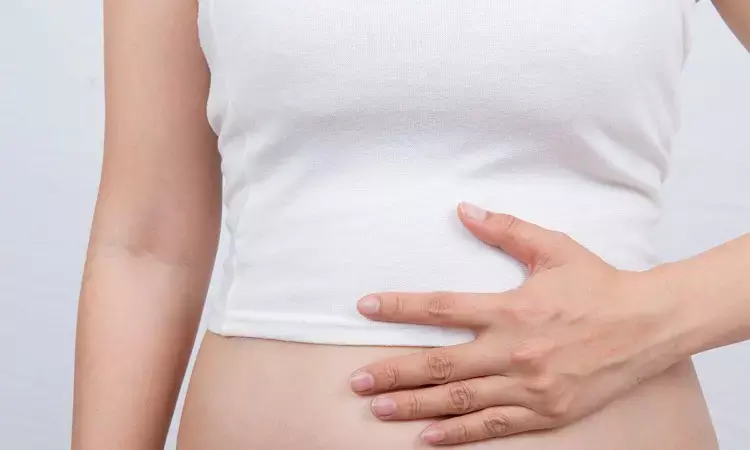- Home
- Medical news & Guidelines
- Anesthesiology
- Cardiology and CTVS
- Critical Care
- Dentistry
- Dermatology
- Diabetes and Endocrinology
- ENT
- Gastroenterology
- Medicine
- Nephrology
- Neurology
- Obstretics-Gynaecology
- Oncology
- Ophthalmology
- Orthopaedics
- Pediatrics-Neonatology
- Psychiatry
- Pulmonology
- Radiology
- Surgery
- Urology
- Laboratory Medicine
- Diet
- Nursing
- Paramedical
- Physiotherapy
- Health news
- Fact Check
- Bone Health Fact Check
- Brain Health Fact Check
- Cancer Related Fact Check
- Child Care Fact Check
- Dental and oral health fact check
- Diabetes and metabolic health fact check
- Diet and Nutrition Fact Check
- Eye and ENT Care Fact Check
- Fitness fact check
- Gut health fact check
- Heart health fact check
- Kidney health fact check
- Medical education fact check
- Men's health fact check
- Respiratory fact check
- Skin and hair care fact check
- Vaccine and Immunization fact check
- Women's health fact check
- AYUSH
- State News
- Andaman and Nicobar Islands
- Andhra Pradesh
- Arunachal Pradesh
- Assam
- Bihar
- Chandigarh
- Chattisgarh
- Dadra and Nagar Haveli
- Daman and Diu
- Delhi
- Goa
- Gujarat
- Haryana
- Himachal Pradesh
- Jammu & Kashmir
- Jharkhand
- Karnataka
- Kerala
- Ladakh
- Lakshadweep
- Madhya Pradesh
- Maharashtra
- Manipur
- Meghalaya
- Mizoram
- Nagaland
- Odisha
- Puducherry
- Punjab
- Rajasthan
- Sikkim
- Tamil Nadu
- Telangana
- Tripura
- Uttar Pradesh
- Uttrakhand
- West Bengal
- Medical Education
- Industry
Miscarriage associated with increased risk of premature mortality: BMJ

Researchers have found in a new study that spontaneous abortion was associated with an increased risk of premature mortality, particularly death from cardiovascular disease.
Women who miscarry appear to be more likely to die before age 70 than those with other pregnancy outcomes.Women who experience a miscarriage appear to be more likely to die prematurely (before age 70), particularly from cardiovascular disease, than women with all other pregnancy outcomes, suggests research published by The BMJ today.
The association between miscarriage and premature death was particularly strong for women who had miscarriages early in their reproductive life or who had recurrent miscarriages, prompting the researchers to suggest that miscarriage could be "an "early marker of future health risk in women."
Spontaneous abortion (the official term for a miscarriage) is one of the most common adverse outcomes of pregnancy, affecting an estimated 12-24% of known pregnancies.
Substantial evidence indicates that women with a history of miscarriage have a greater risk of high blood pressure, cardiovascular diseases, and type 2 diabetes, but evidence relating miscarriage to risk of early death is scant and inconsistent.
To explore this further, a team of US researchers set out to investigate the associations between miscarriage and risk of all cause and cause specific premature death.
Their findings are based on data for 101,681 female nurses taking part in the Nurses' Health Study II – an ongoing study of US women of reproductive age at the beginning of the study (25-42 years) - whose pregnancies and health were followed over a 24-year period between 1993 and 2017.
The women completed questionnaires every second year during the follow-up period, and were asked about pregnancies and their outcomes as well as lifestyle factors and health related conditions.
The researchers found that among the 101,681 women observed over time, 25.6% (26,102) had at least one pregnancy ending in miscarriage.
During the 24 years of follow-up, there had been 2,936 premature deaths among the women, including 1,346 cancer deaths and 269 cardiovascular disease deaths.
Death rates from all causes were comparable for women with and without a history of miscarriage (1.24 per 1,000 person years in both groups), but were higher for women experiencing three or more miscarriages (1.47 per 1,000 person years) and for women reporting their first miscarriage before the age of 24 (1.69 per 1,000 person years).
After accounting for other potentially influential factors and updated dietary and lifestyle characteristics, the researchers found that women who miscarried were 19% more likely to die prematurely than women who did not miscarry.
The association was stronger for recurrent miscarriages, and for miscarriages occurring early in a woman's reproductive life.
When cause specific mortality was evaluated, the association between miscarriage and premature death was strongest for cardiovascular deaths – a 48% heightened risk - but was not related to premature death from cancer.
This is an observational study, so can't establish cause, and the authors point to some limitations. For example, it's not known whether experiencing the spontaneous loss of a pregnancy merely unmasks pre-existing risks or instead triggers or accelerates the development of premature death.
Nevertheless, strengths included the large sample size and extensive follow-up period across most of the women's reproductive lifespan. The researchers were also able to account for various reproductive characteristics, lifestyle and health related factors that may have otherwise affected the results.
"Our results suggest that spontaneous abortion could be an early marker of future health risk in women, including premature death," write the authors.
"More research is needed to establish how spontaneous abortion is related to women's long term health and the mechanisms underlying these relations," they conclude.
Journal: The BMJPublic link once embargo lifts: https://www.bmj.com/content/372/bmj.n53
Dr Kamal Kant Kohli-MBBS, DTCD- a chest specialist with more than 30 years of practice and a flair for writing clinical articles, Dr Kamal Kant Kohli joined Medical Dialogues as a Chief Editor of Medical News. Besides writing articles, as an editor, he proofreads and verifies all the medical content published on Medical Dialogues including those coming from journals, studies,medical conferences,guidelines etc. Email: drkohli@medicaldialogues.in. Contact no. 011-43720751


